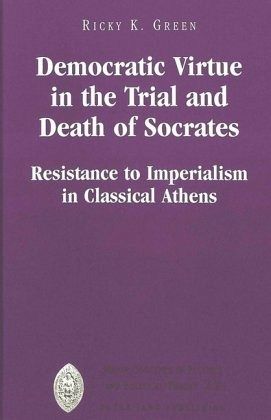Nicht lieferbar

Democratic Virtue in the Trial and Death of Socrates
Resistance to Imperialism in Classical Athens
Versandkostenfrei!
Nicht lieferbar
Thucydides' History of the Peloponnesian War and Plato's Apology represent two influential works of classical Athens. Thucydides' work is widely recognized as an argument for democratic thought. Plato's work, an essential tract in western philosophy, is often accused of being anti-democratic. This book reconstructs a fundamental understanding of the conflict between the political thought and action of Socrates and Athens. It challenges prior commentary on three essential fronts. First, it explores the extent to which imperial ambition and competition subvert Athenian democracy. Second, it expl...
Thucydides' History of the Peloponnesian War and Plato's Apology represent two influential works of classical Athens. Thucydides' work is widely recognized as an argument for democratic thought. Plato's work, an essential tract in western philosophy, is often accused of being anti-democratic. This book reconstructs a fundamental understanding of the conflict between the political thought and action of Socrates and Athens. It challenges prior commentary on three essential fronts. First, it explores the extent to which imperial ambition and competition subvert Athenian democracy. Second, it explores the extent to which Socrates' labors oppose the ambition and competition inherent in Athenian imperialism. Finally, it explores the extent to which Socratic morality represents a threat to post-restoration Athenian ambition.











